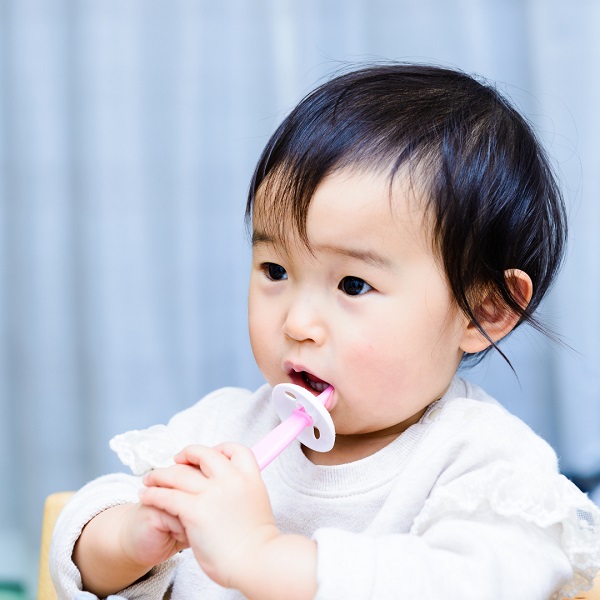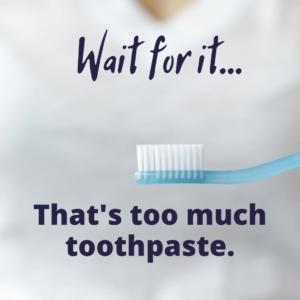There is a good reason that we talk about “cutting your teeth” on new activities. Teething can be a difficult and highly irritating process for infants and toddlers, even more so because they lack the words to tell us about their pain. But by paying close attention to our babies’ signals — by observing them carefully for signs of teething — caregivers and parents can help ease the process of cutting teeth.
What do we talk about when we talk about teething?
A baby’s teeth begin forming while still in utero. In rare cases, a baby might be born with one or more teeth, but most babies begin getting teeth at about four to seven months of age. These are their primary teeth, which they will keep until their adult teeth come in, at about age 6. Teething is the process of these teeth emerging from below the gum line. It can take a few years for all 20 baby, or primary teeth to come in.
How to determine your baby is teething Some babies teethe without any symptoms, but if your baby looks like he/she is experiencing some of the following symptoms it is quite possible your baby is teething.
1. Sucking or chomping down on fingers
Pressure from erupting teeth can cause discomfort; biting down or clamping down on things can help relieve that pressure. Teething babies need good objects to bite on. There are many teething rings and other products on the market suitable for teething babies. But there are other great standbys you can use, like frozen washcloth or even a cold carrot.
2. Drooling
Teething stimulates the saliva glands. Generally, babies drool the most between 10 weeks and four months of age. Wipe baby’s face promptly to keep them from developing a rash from the saliva.
3. Inflamed gums
Teeth emerging from the gums will often cause the gums to become inflamed, or red and puffy. This can be very painful for infants. Cold compresses can help ease the pain.
4. Crankiness
If your baby has unexplained crankiness, he/she might be teething. Some may only be cranky for short periods, while others will be irritable for days or even weeks. This is why teething is a period in an infant’s life when they are in great need of soothing.
5. Disinterest in feeding
Sometimes the sucking necessary to breastfeed or bottle-feed makes a baby’s gums hurt even more. This is usually temporary, but check with your doctor if baby has gone on a complete hunger strike.
6. Diarrhea
Some babies experience diarrhea while teething. Check with your doctor if it doesn’t go away after a day.
7. Coughing
Drool can cause coughing or choking. This might also be a sign of baby having a cold or flu, so be sure to observe the baby carefully.
8. Face rash
Drooling can cause face rashes or chapped lips. Try to keep babies face clean of drool, and if a rash has developed, use a gentle cream to soothe the irritated skin.
9. Low-grade fever
Teething can sometimes produce a fever of less than 101 degrees. If it last longer than three days, be sure to take baby to the doctor.
10. Difficulty sleeping
Teething continues regardless of sleeping patterns. Your baby might require some night-time soothing to return to sleep when he/she is dealing with teething pain.
11. Ear or cheek rubbing
Aches from teething can travel far beyond the gums. However, yanking on ears can be a sign of an ear infection, so be sure to take your baby to see the pediatrician if you are concerned the pulling on ears is from more than just teething.
12. Bluish lump on gums (gum hematoma)
Bleeding under the gums from teething can look like a bluish lump. These heal faster if you use a cold compress (a frozen washcloth works well), and are usually not a reason for concern. However, if the eruptions has a lot of fluid in it you should consider taking your baby in to see the dentist.
How can I help my baby?
Every baby responds differently to the teething process. Some experience very little fussiness. For others, weeks-long cranky periods are completely normal. You can help your baby by soothing him/her — hugging, holding walking, rocking, whatever it is your baby seems to like. Being in your loving embrace does amazing things to help your baby feel better. Talk to your baby in a calm and caring voice. Let him or her know what is going on.
Babies may not understand exactly what you are saying, but they will feel better when you are reassuring them with a sweet and confident voice. If the teething rings, cold compresses, chew toys, frozen washcloths and other teething objects are not working for your baby, have your pediatrician recommend an appropriate pain reliever such as baby acetaminophen. Always follow the directions exactly for infant pain drops.




